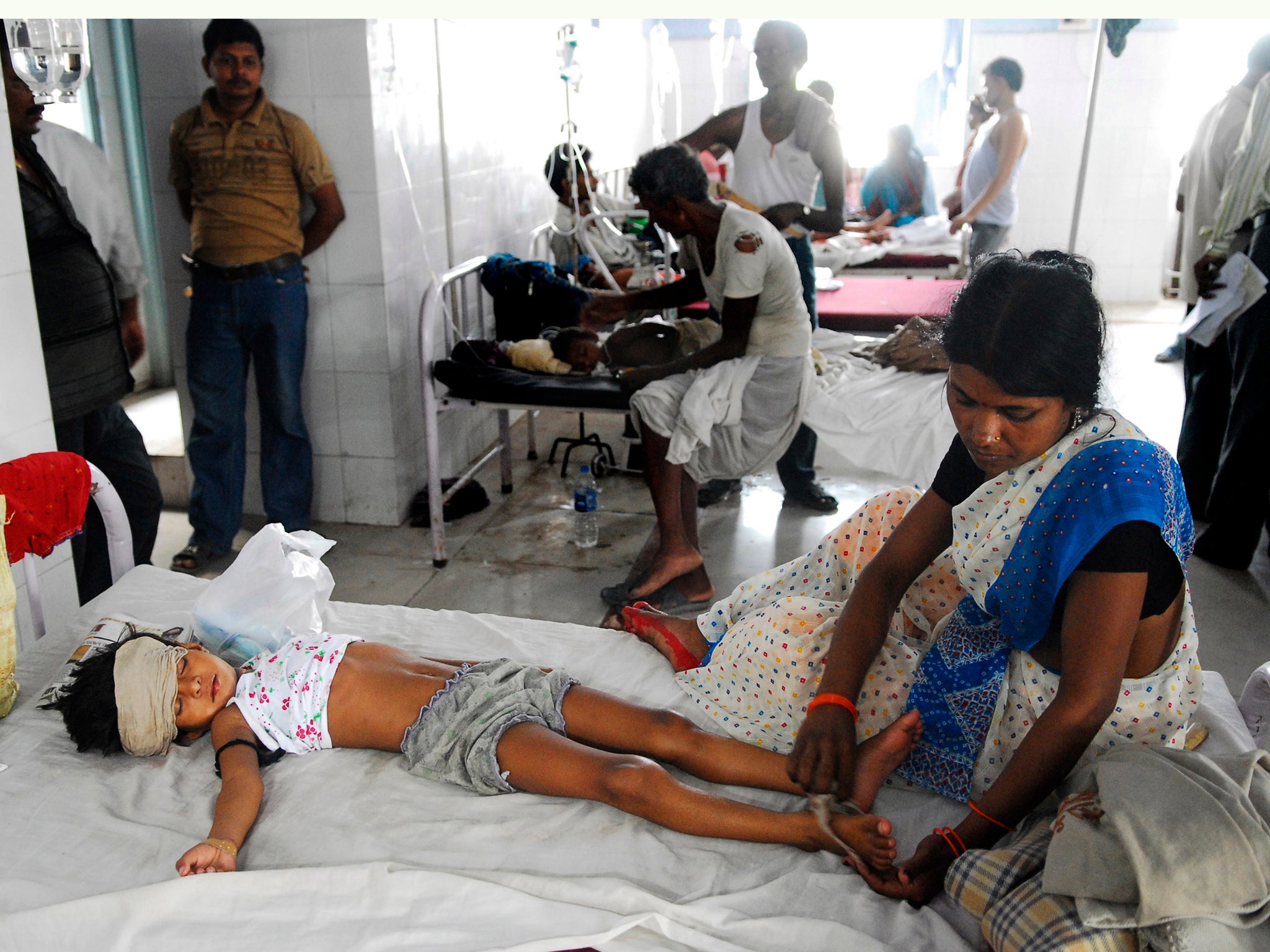Health officials tackle new outbreak of disease which has killed 350 children in India
Encephalitis causes vomiting and headaches and swelling of the brain

Health officials in northern India are battling to confront a new outbreak of encephalitis, a disease that has this year killed at least 350 children in one state alone. Up to 15 children have died in one hospital in the last few days.
Encephalitis, or swelling of the brain, can be caused by both bacterial and viral infection and is common across large swathes of India, especially in the post-monsoon season when mosquitoes are rife.
But the eastern part of Uttar Pradesh (UP), the vast, impoverished state that is home to more than 200m people, has emerged as the ground zero of the condition. Local reports suggest that 50,000 people have died of encephalitis in UP over the past three decades.
Following the latest outbreak, many of the affected children have been taken to the Baba Raghav Das Medical College hospital in the city of Gorakhpur, located close to the border with Nepal.
The head of the hospital’s paediatrics department, Dr KP Kushwaha, said 150 children were currently being treated in different wards within the hospital.
“The disease has been present here for so many years,” he said. “This is an area where there is a high water table and where people usually defecate outside, so drinking water becomes contaminated.”
He added: “There is poor sanitation, poor hygiene and poverty – these are the factors that expose people to the virus.”
Indian media has said both the central and provincial government had in the past promised that adequate funding would be made available to deal with the problem. But the CNN-IBN news channel reported that a lack of hospital beds and insufficient doctors meant the problem was still widespread.
Reports suggest that up until 2005, the majority of deaths were caused by Japanese encephalitis, a mosquito-borne virus. But since then children have been contracting and dying from other forms of viral encephalitis. Today perhaps just 12 per cent of all cases are of Japanese encephalitis.
Last week, India launched a domestically-produced vaccine against Japanese encephalitis as part of a programme to fight the virus. Terming it an “Indian solution for an Indian problem”, the federal health minister Ghulam Nabi Azad said the development would help with the availability of the vaccine, which India had previously sourced from China.
“Since we were using a vaccine imported from China, availability was certainly an issue for comprehensive and quick augmentation of the national programme,” he said. He said a total of 171 districts in 19 of India’s states were now affected by the Japanese encephalitis virus.
Encephalitis causes vomiting and headaches and swelling of the brain. It can also lead to inflammation of the heart and kidney. Doctors say that children aged between six months and 15 years are the most vulnerable
Dr Kushwaha, from Gorakhpur, said the solution for India’s encephalitis crisis was public education, along with investment in sanitation and clean drinking water. He added: “It will not be tackled immediately.”
Subscribe to Independent Premium to bookmark this article
Want to bookmark your favourite articles and stories to read or reference later? Start your Independent Premium subscription today.

Join our commenting forum
Join thought-provoking conversations, follow other Independent readers and see their replies